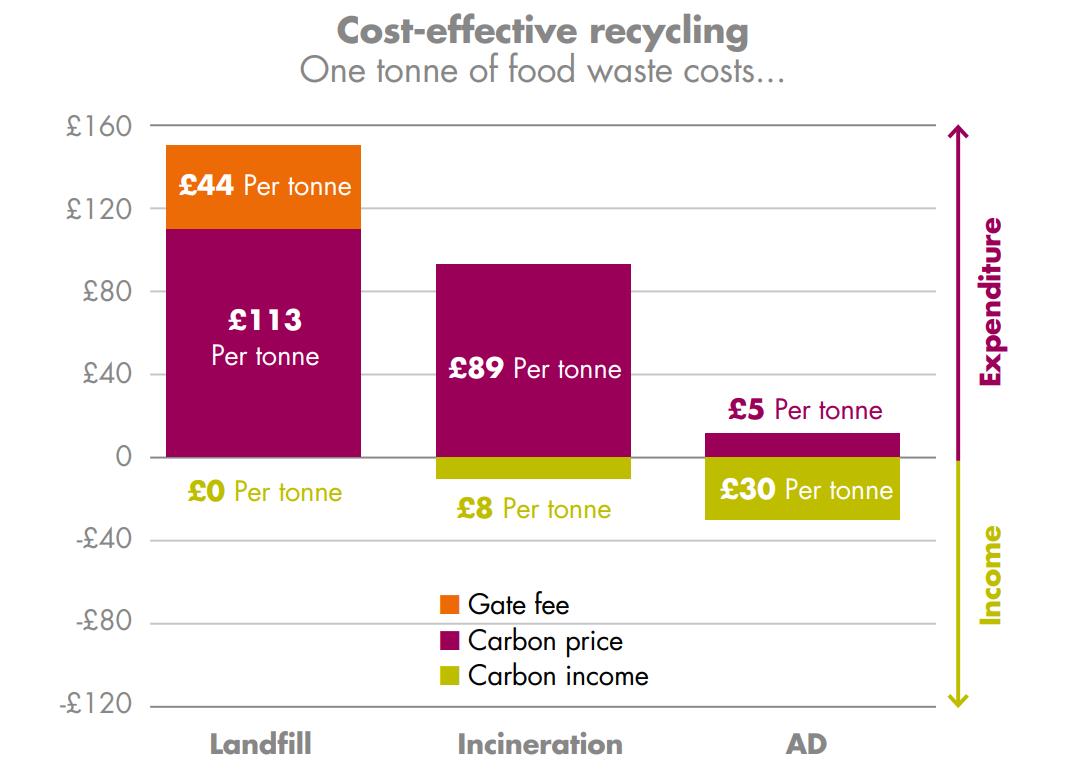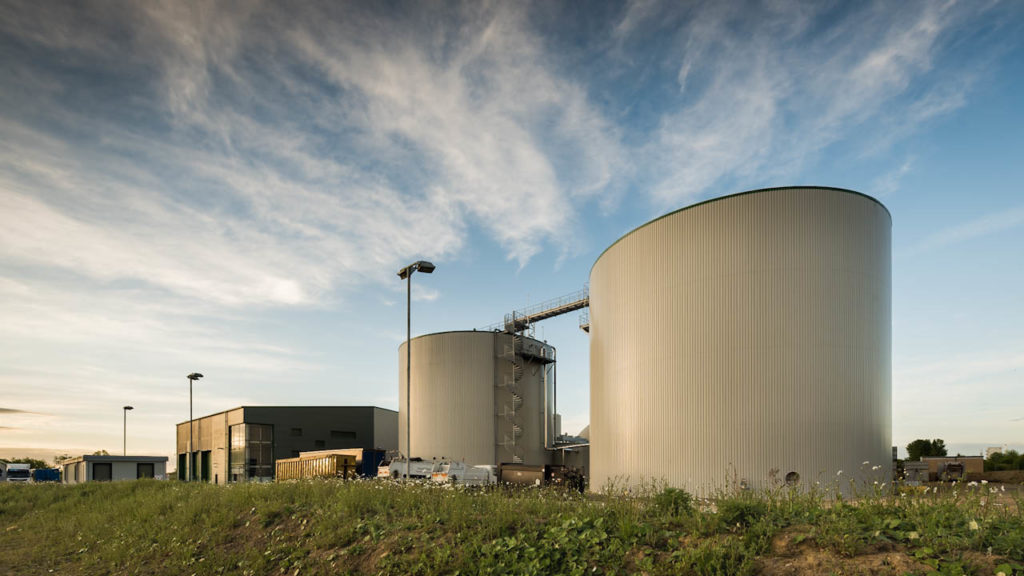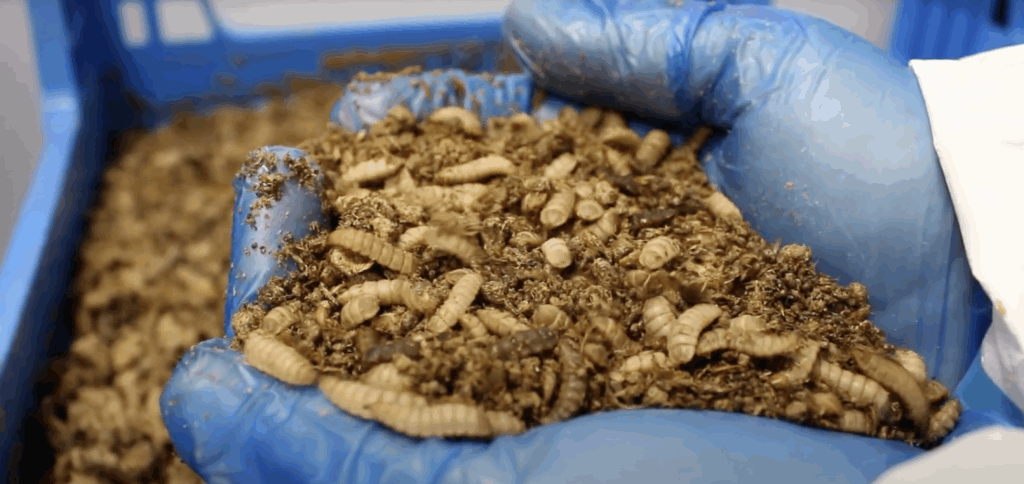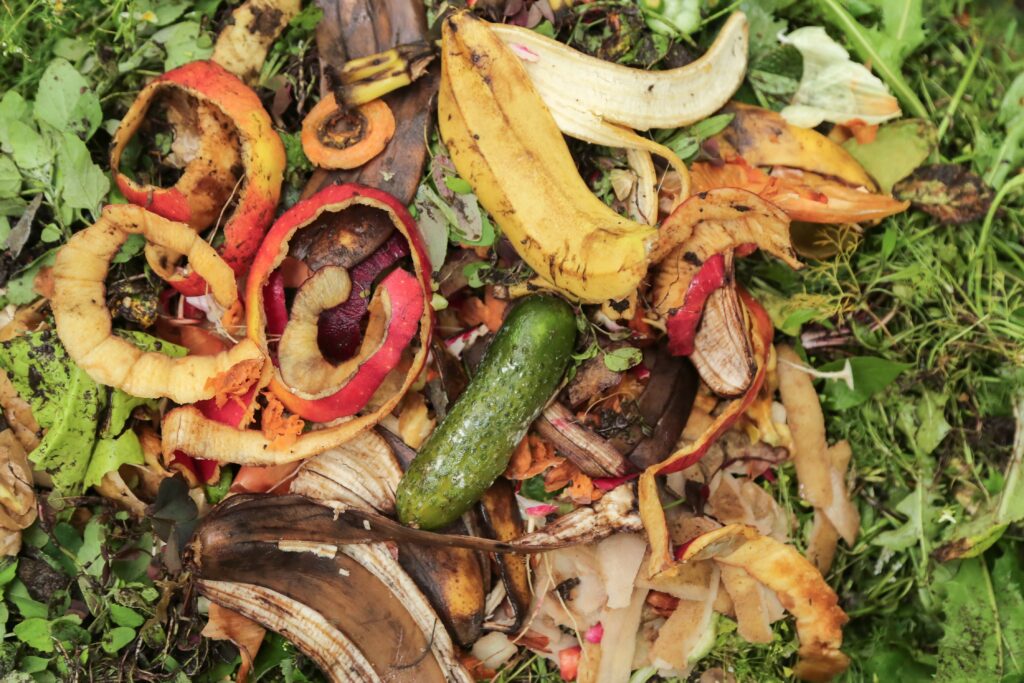The claim from the Anaerobic Digestion and Bioresources Association (ADBA) came in a briefing published last week, which looked at the impact of sending food waste to landfill or incineration and presented how this can be helped by treating it through the AD process instead.

The association pointed out that AD and its by-products, which are biomethane, bio-CO2 and biofertiliser, would help with carbon as well as financial savings between £1.4 million to £1.8 million.
It explained that this is because costs are higher for processing food waste through less environmentally friendly technologies. According to the report, “average landfill and incineration gate fees are £113 per tonne and £89 per tonne respectively, while AD is £5 per tonne.”
Mandated collection
The report comes in the anticipation of government-mandated collection of food waste for local authorities, which is expected to start in 2023. The move follows the missed target to recycle 50% of household waste by 2020 and is expected to “significantly impact overall recycling in England.”
Charlotte Morton, ADBA’s chief executive said: “Local authorities acknowledge that they need to act on the causes and impacts of climate change. Recycling food waste through AD turns ‘waste’ into valuable, low carbon bioresources that can deliver a 6% cut in the UK’s greenhouse gas emissions.
“Not only that, but AD is also a cost-effective, circular solution which, by ushering a sustainable waste management system and changing behaviour, will benefit the whole community in the long term,” she added.
On the commercial front, ADBA said that Defra is considering plans to move towards ‘zoned’ collections.
This could result in local authorities collecting food waste from small businesses as well, in a bid to “reduce waste miles from competing refuse collection trucks.”
Behaviour change
The briefing also pointed to the positive impact on behaviour change and reviewed the legislation framework to develop a new waste management structure.
The report stated that food waste forms over 33% of residual waste.
According to WRAP’s study referred to in the briefing, 69kg of edible food waste is produced per person.
ADBA stated that separate food waste collection would help facilitate behaviour change by making residents more aware of their habits, which could reduce the amount wasted per person by 6kg. The association said that preliminary data suggests that collecting food waste separately would cut total waste by around 8%.
Positive impacts
The report concludes that treating food waste through AD can have overall positive impacts in decarbonising local economies.
Case studies showed that local authority waste collection vehicles can use biomethane produced by AD as fuel, reducing one of the key carbon emissions. This has already been implemented by Bracknell Forest council, Northern Ireland’s Granville Eco Park and Emerald Biogas.
It can also be used as a source of renewable energy. Additionally, bio-CO2 is suitable for industrial use or storage and biofertiliser.









Subscribe for free